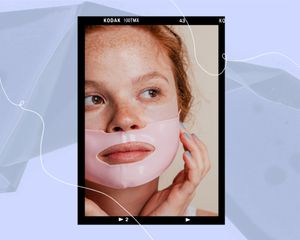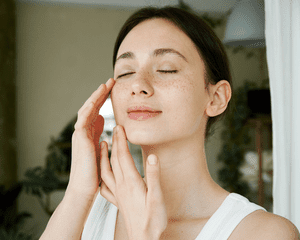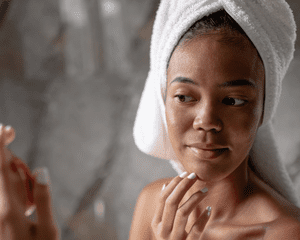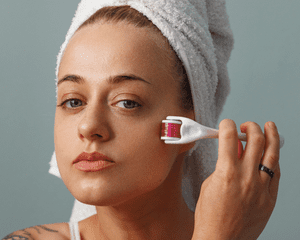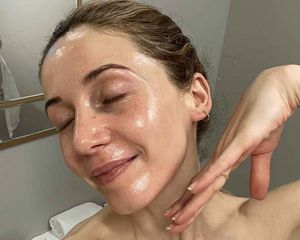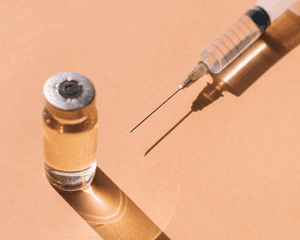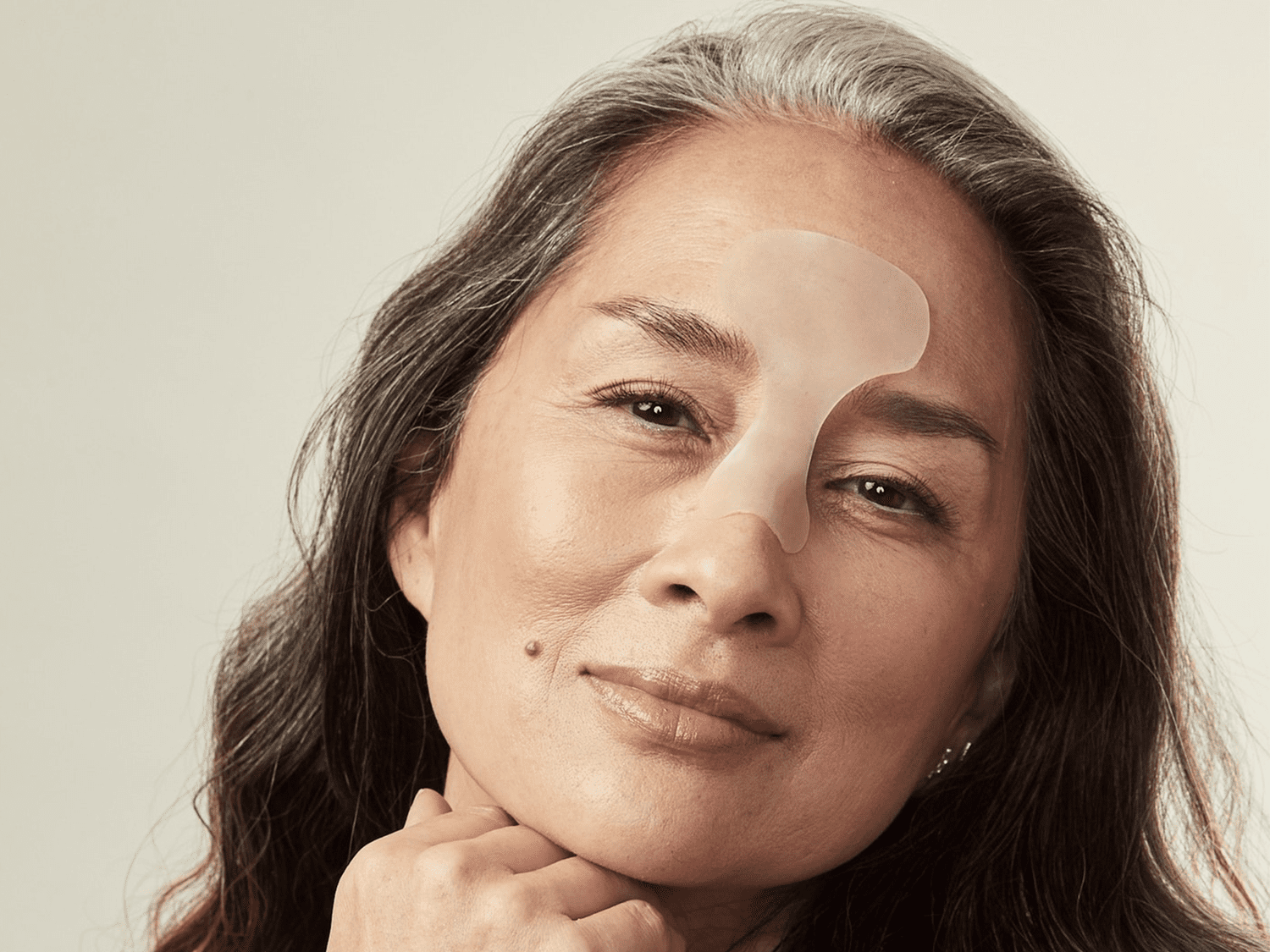
@siobeauty / Instagram
Beauty trends pop up constantly on social media, but even some of the most current trends have actually been around for years. That includes the latest trend to hit the FYP: Face taping. Yes, as in putting tape on your face either overnight (or for a limited amount of time under makeup) to reduce wrinkles. Some of Hollywood's most iconic actors and makeup artists have spoken of wearing face tape for events or during filming to give the skin a lifted, smoother appearance. It’s also a technique frequented by the drag community. But can face taping actually improve the appearance of wrinkles, or is it just another ill-advised social media trend? We asked the pros—board-certified dermatologists Anthony Rossi, MD, and Dr. Ivy DeRosa—to share everything they need to know about face taping—aka wrinkle taping.
Meet the Expert
- Anthony Rossi, MD is a board-certified dermatologist at Memorial Sloan Kettering Cancer Center.
- Ivy DeRosa, MD is a board-certified medical and cosmetic dermatologist with a small private practice outside of Philadelphia.
What Is Face Taping?
Face taping—also called wrinkle taping—involves taping your skin into a taut position to allegedly improve the appearance of wrinkles and prevent new wrinkles from forming. "The concept of face taping is basically exactly what the name implies," DeRosa explains. "A tape/adhesive product is placed on areas where we tend to notice lines such as forehead, under the eye, cheeks, and décolleté." People use anything from classic Scotch tape to more advanced, reusable patches like Frownies and Sio Beauty patches.
While it may seem trendy, it's actually steeped in history. “Face taping may not be mainstream but it's not new,” Rossi says. “From drag performers to movie stars, face taping has been used to help instantly lift the skin and disguise wrinkles in strategic places. By taping the face up in certain vectors, you can give an instant facelift effect.”
How Does It Work?
Most popularly, people sleep in the tape overnight in hopes of preventing new wrinkles and giving existing wrinkles a temporarily more lifted, smoother appearance. "The thought process is, during sleep we are rolling around, squishing things, using our muscles, so if we can hold things in place then we shouldn't get wrinkles, right?" DeRosa says. Some swear by the overnight effects, but others wear face tape for a more immediate look.
By wearing it overnight, the tape should ideally constrict muscles and limit their motion, preventing you from frowning or making other line-inducing expressions in your sleep. It’s also said to reduce and prevent lines caused by sleeping on your side and stomach. Face tape can also be used for an immediate lifting and smoothing effect—like Spanx for your face, says Hirsch.
:max_bytes(150000):strip_icc()/wrinkle-tape-before-after-1290b8ec02e24c8b999a7afefb39152c.png)
@siobeauty / Instagram / Byrdie
Benefits of Face Taping
Here’s the thing: Experts agree that wrinkles and fine lines certainly look better when the tape is on. So using it overnight seems to be a moot point—the tape isn’t going to reduce your wrinkles. When used for an event, though, it can hide signs of aging and gives an immediate lift to the face.
But using face tape is similar to using makeup to cover blemishes—it’s an instant material effect, not a long-term solution or fix. "These can provide a temporary improvement in the appearance of fine lines, but again it's temporary," says DeRosa. If you’re looking to actually treat wrinkles, experts suggest looking into laser therapy, chemical peels, and other in-office procedures.
Potential Side Effects of Face Taping
Even as a short-term, momentary solution, face tape can be fairly cumbersome. According to Rossi, it’s hard to camouflage, even with heavy makeup or a wig. Beyond that, all the doctors mentioned the potential for irritation due to the glue on the tape. And while certain materials are often used for face tape to lessen this risk, irritation is still a possibility.
And, DeRosa says, repeated use can and will be irritating for most people—regardless of the tape’s materials. "The areas where people are applying the tape are often where the skin can be the most sensitive, particularly under the eyes and on the chest," she says. "The physical adhesive when putting on and off can cause damage to your skin barrier, leading to irritation, dryness and can actually worsen over time the appearance of the skin." Rossi also points out that if the tape is left on too long, its occlusive nature could cause clogged pores and acne from the sweat and sebum buildup.
So, Does It Work?
It’s clear that overnight face taping is fairly pointless—it does not provide any sort of permanent benefits and can really only cause irritation. The same goes for everyday use. Face tape is hard to camouflage and repeated use increases the chances of irritation.
If someone can recognize it for what it is—essentially a “facial Spanx” meant to temporarily improve the appearance for a big night out or for filming—it can be okay occasionally. Just remember that it is by no means whatsoever a way to treat or prevent wrinkles—and that it can lead to dryness and irritation.
As De Rosa says, "The juice is not worth the squeeze for this one. Trends will come and go, but scientifically the things your skin benefits from the most have not changed. The most effective way to keep your skin healthy and aging gracefully is a daily broad spectrum sunscreen of spf 30+ in the AM and a retinoid nightly."
